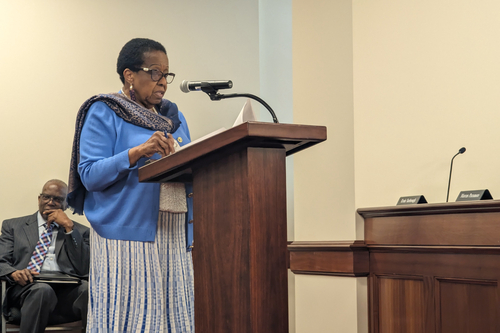Alabama House passes expansion of the Accountability Act

The Alabama House Wednesday passed a bill that could significantly expand the Alabama Accountability Act.
SB 263, sponsored by Sen. Donnie Chesteen, R-Geneva, passed the House on a 75-22 vote. The bill goes to Gov. Kay Ivey.
Chesteen’s legislation would make significant changes to the 2013 law, including expanding the number of schools falling under it; increase income ceilings for households that qualify for it, and replace the term “failing schools” with “priority schools.”
“It doesn’t use the ‘failing school’ at all. It uses ‘D’ and ‘F’ schools as priority schools, and so more children have access to it, children with unique needs have access to it and it expands the opportunities,” said Rep. Terri Collins, R-Decatur, the chair of the House Education Policy committee, who carried the bill in the chamber.
The Alabama Accountability Act allows families of children in “failing schools” – identified as the bottom 6% of schools by test scores – to go to other schools and apply for scholarships for private schools. Scholarships are funded out of the Education Trust Fund, the state’s education budget.
Chesteen’s bill would raise the maximum income threshold for children also used to qualify, from 185% of the poverty line, or about $45,991 a year for a household of three people, to 250%, or about $62,150 a year.
The change in the failing school definition would increase the number of schools that could qualify under the bill, from 79 to about 220, and the number of students by about 1,200, from the current 3,200.
While the bill caps the scholarship at the federal poverty level of 250%, it would allow a student to remain on a scholarship until the family “until or unless” the family’s annual income exceeds 350% of the federal poverty level. Families of three with incomes up to $87,010 could potentially qualify for a scholarship to a private school.

Rep. Laura Hall, D-Huntsville, said she was concerned about potentially opening up the door for wealthier families to qualify for the scholarships.
“I know some people who have taken advantage of this bill,” Hall said.
Hall also said that a name change is “fine,” but what if they keep the same process that doesn’t provide resources to “enhance and make sure that school moves forward.” She said that many schools have teachers that aren’t qualified to teach, particularly in their subject matter.
“As we look at this particular bill, the challenges that I see for us is making sure that whoever the person that stands in that classroom in front of our children should be qualified and certified to do the job,” Hall said.
The bill also sets the maximum scholarship to $10,000 for all students. Under current law, the maximum amounts are staggered from $6,000 to $10,000, based on grade level.
The Legislative Fiscal Office estimates the law, when fully implemented, would increase the cap on scholarships claimed out of the Education Trust Fund from $30 million to $40 million.








